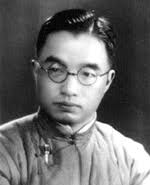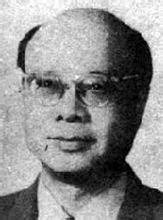Li Fei-kan (1904-), anarchist writer known as Pa Chin, whose novels and short stories achieved popularity in the 1930's and 1940's. Born in Chengtu, Szechwan, Li Fei-kan came from a wealthy and educated gentry family. His early childhood was spent in Chengtu except for three years in Kuangyuan, where his father was magistrate from 1906 […]










